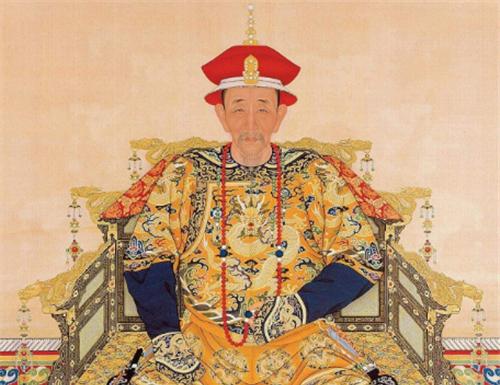The Qing Dynasty was the last feudal dynasty in Chinese history, and at the same time it is also the feudal dynasty we are most familiar with, the Qing Dynasty was a regime established after the entry of Manchuria, from the time when the Emperor Taiji changed the name of the country to the Great Qing in 1636, until the abdication of the last Emperor Puyi in 1912, a total of 276 years. Many people may wonder, since the Qing Dynasty royal family is in the Central Plains, do they generally speak Manchu or Chinese?

The best way to ask this question is naturally to ask the emperor himself directly, and this emperor naturally refers to the last emperor Puyi. We know that because the Guangxu Emperor left no heirs, in the winter of the thirty-fourth year of Guangxu (1908), when the Guangxu Emperor was seriously ill, Cixi raised Puyi in the palace and prepared to inherit the throne.
On November 14, 1908, the Guangxu Emperor died, and on December 2 of the same year, Puyi took the throne at the Taihe Temple. At this time, Puyi was only three years old, and as a result, he was only emperor for 3 years, and the Qing Dynasty completely perished under the fire of the Xinhai Revolution, but Puyi, as the emperor of the subjugated country, not only had his life unhindered, but also continued to live in the palace, and the living expenses were allocated by the Republic of China government.
On September 10, the first year of the Republic of China (1912), puyi, 6 years old, was about to start studying. Masters such as Lu Runku, Xu Fang, Chen Baochen, Zhu Yifan and Liang Dingfen were responsible for teaching Puyi Chinese, while Iktan was responsible for teaching Puyi Manchu. Why are there so many teachers teaching Chinese? Therefore, they also have to teach Puyi cultural knowledge, including "University Yanyi", "Zhu Zi Family Training" and other classics.
Therefore, Puyi Chinese is much better than Manchu, Puyi once mentioned in his personal autobiography "The First Half of My Life": "In my studies, the worst thing I learned was my Manchu, I only had a few simple Manchu words", in fact, from the last years of the Qing Dynasty, Manchu gradually disappeared within the imperial family.
Further up, we can also find that the last ruler of the Qing Dynasty, Empress Dowager Cixi, would not be Manchu, and although Cixi was also a Manchurian and a descendant of Yehenara, one of the Eight Banners of the Manchu Qing Dynasty, Cixi just couldn't write Manchu, so the Guangxu Emperor also specifically ordered that Manchurian officials must use Manchu and Chinese bilingualism when playing the book, in order to let Cixi approve the recital, otherwise, if it is only Manchu, how can Cixi understand it?
And what about the situation in the early and middle Qing Dynasties? "The Cultivation and Division of The Princes of the Qing Dynasty" records that the princes of the Qing Dynasty had to get up every day from three to five o'clock in the morning to go to the study to read, and whether it was cold or hot, they could not slacken off. The content of their classes was first Manchu and Mongolian, and then Chinese.
That is to say, the Qing Dynasty royal family generally had to master the manchu, Han and Mongolian languages, and in the early Qing Dynasty, it was naturally more familiar with Manchu than Chinese, followed by Mongolian. In their daily communication, they mostly use Chinese, and then use Manchu to show their identity when the emperor gives orders, issues decisions, and holds major ceremonies.
So we can see from this that the use of language by the Qing Dynasty royal family is constantly changing with the changes of the times, there is no fixed which language to use, when the emperor Taiji entered the customs, he even wanted to let the Han people use Manchu and Manchu, but found it too difficult and had to give up, just brought Manchu into Guanzhong. In the end, the Manchu Qing royal family still had to integrate into the Han culture, which is enough to see the deep and unshakable cultural heritage of the Chinese language and Chinese characters.